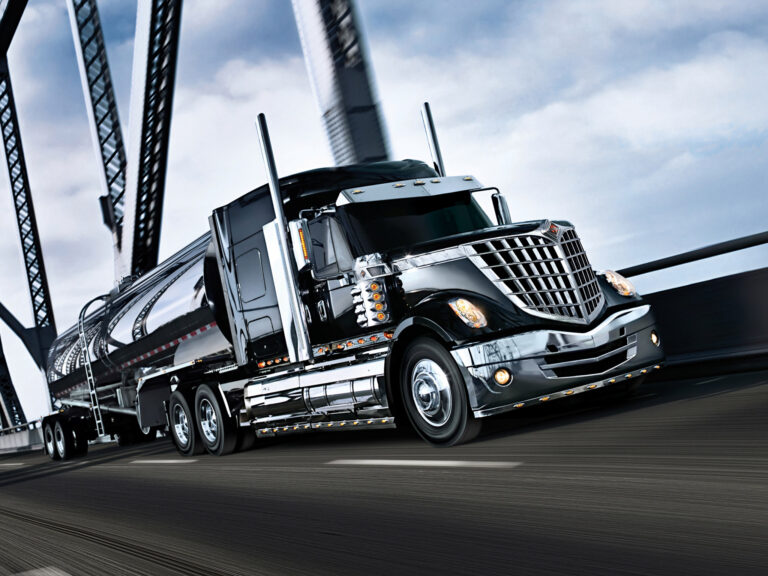All Major Car Brands: A Comprehensive Guide to the Global Automotive Landscape
All Major Car Brands: A Comprehensive Guide to the Global Automotive Landscape cars.truckstrend.com
The world of automobiles is a vast and dynamic ecosystem, populated by an incredible array of brands, each with its unique history, philosophy, and market position. From the everyday commuter vehicle to the pinnacle of luxury and performance, understanding "all major car brands" means delving into the intricate web of manufacturers, their parent companies, and the diverse offerings they bring to consumers worldwide. This guide aims to provide a comprehensive overview, helping you navigate the complex automotive landscape and make informed decisions.
The Global Automotive Landscape: A Bird’s-Eye View
All Major Car Brands: A Comprehensive Guide to the Global Automotive Landscape
At its core, the automotive industry is a powerhouse of innovation, engineering, and economic activity. It’s an industry constantly evolving, driven by technological advancements, shifting consumer demands, and global sustainability goals. While thousands of individual car models exist, they originate from a surprisingly consolidated group of major manufacturers and their subsidiaries. These entities, often referred to as automotive groups or conglomerates, wield immense influence, shaping the future of mobility and offering a staggering variety of vehicles under different brand names. Understanding these major players is crucial for anyone looking to grasp the true scope of the car market.
Giants of the Automotive World: Major Groups and Their Brands
The global automotive industry is dominated by a handful of multinational corporations, each housing multiple well-known brands. This structure allows for shared platforms, technologies, and economies of scale, while maintaining distinct brand identities for various market segments.
1. Toyota Motor Corporation (Japan)
A global leader renowned for its reliability, efficiency, and innovative hybrid technology.
- Key Brands:
- Toyota: Mass-market vehicles, known for reliability, fuel efficiency, and a wide range of sedans, SUVs, and trucks (e.g., Camry, RAV4, Tacoma).
- Lexus: Premium and luxury vehicles, emphasizing refinement, quality, and strong hybrid offerings.
- Daihatsu: Compact cars and commercial vehicles (primarily for Asian markets).
- Hino: Commercial trucks and buses.

2. Volkswagen Group (Germany)
Europe’s largest automaker and one of the world’s leading manufacturers, known for engineering prowess and a diverse portfolio.
- Key Brands:
- Volkswagen: Core mass-market brand, offering a wide range of vehicles from compacts to SUVs (e.g., Golf, Tiguan, ID.4).
- Audi: Premium and luxury vehicles, known for sophisticated design, advanced technology, and quattro all-wheel drive.
- Porsche: High-performance sports cars and luxury SUVs, synonymous with driving dynamics and engineering excellence.
- Skoda: Value-oriented mass-market brand, strong in Europe, offering practical and well-built cars.
- SEAT: Sporty and design-focused mass-market brand, popular in Europe.
- Lamborghini: Ultra-luxury supercars and SUVs.
- Bentley: Ultra-luxury sedans and SUVs, emphasizing craftsmanship and opulence.
- Bugatti: Exclusive hypercars, known for extreme performance and rarity.
- Scania & MAN: Heavy trucks and buses.
3. Stellantis (Netherlands/France/Italy/USA)
Formed by the merger of Fiat Chrysler Automobiles (FCA) and PSA Group, Stellantis is a truly global automotive giant.
- Key Brands:
- Jeep: Iconic SUVs, renowned for off-road capability and adventure.
- Ram: Full-size pickup trucks and commercial vans, known for power and utility.
- Dodge: Performance-oriented cars and SUVs, emphasizing American muscle.
- Chrysler: Traditional American sedans and minivans.
- Fiat: Compact and city cars, with a distinctive Italian flair.
- Peugeot: Stylish and well-engineered mass-market cars, strong in Europe.
- Citroën: Comfort-focused and quirky mass-market cars, known for innovative design.
- Opel/Vauxhall: European mass-market brands offering a wide range of sedans, hatchbacks, and SUVs.
- Alfa Romeo: Sporty and passionate luxury vehicles, emphasizing Italian design and driving dynamics.
- Lancia: Historic Italian brand, now focused on the domestic market.
- Maserati: Luxury and performance cars, known for Italian elegance and powerful engines.
4. General Motors (USA)
An American automotive icon with a global footprint, known for its strong truck and SUV lineup.
- Key Brands:
- Chevrolet: Mass-market brand with a wide range of vehicles from cars to trucks, SUVs, and performance cars (e.g., Silverado, Equinox, Corvette).
- GMC: Premium trucks and SUVs, offering more upscale features than Chevrolet counterparts.
- Cadillac: Luxury vehicles, focusing on technology, design, and performance.
- Buick: Near-luxury vehicles, popular in North America and China, known for comfortable rides.
5. Ford Motor Company (USA)
A pioneer in the automotive industry, known for innovation and global reach.
- Key Brands:
- Ford: A diverse range of vehicles including popular trucks (F-Series), SUVs (Explorer, Bronco), commercial vehicles, and performance cars (Mustang).
- Lincoln: Luxury vehicles, emphasizing comfort, technology, and sophisticated design.
6. Hyundai Motor Group (South Korea)
A rapidly growing force in the global market, known for value, design, and aggressive electrification strategies.
- Key Brands:
- Hyundai: Mass-market vehicles, offering stylish designs, advanced features, and strong warranties.
- Kia: Mass-market vehicles, known for bold design, value, and sportiness.
- Genesis: Luxury brand, competing with established premium automakers with elegant designs and strong performance.
7. Mercedes-Benz Group (Germany)
Synonymous with luxury, innovation, and engineering excellence.
- Key Brands:
- Mercedes-Benz: Premium and luxury vehicles, from sedans to SUVs, known for comfort, safety, and cutting-edge technology.
- Mercedes-AMG: High-performance variants of Mercedes-Benz vehicles.
- Mercedes-Maybach: Ultra-luxury sedans, offering the pinnacle of automotive opulence.
8. BMW Group (Germany)
A leading manufacturer of premium cars and motorcycles, known for "The Ultimate Driving Machine."
- Key Brands:
- BMW: Premium and luxury vehicles, renowned for sporty driving dynamics, sophisticated technology, and iconic design.
- Mini: Compact and fun-to-drive premium cars, known for distinctive styling and go-kart handling.
- Rolls-Royce: The epitome of ultra-luxury vehicles, handcrafted and bespoke.
9. Renault-Nissan-Mitsubishi Alliance (France/Japan)
One of the largest automotive alliances, leveraging shared technologies and platforms across continents.
- Key Brands:
- Renault: Mass-market brand, strong in Europe, known for innovative design and electric vehicles.
- Nissan: Mass-market vehicles, offering a wide range of cars, SUVs, and trucks, with a focus on technology (e.g., Rogue, Frontier, Leaf).
- Mitsubishi: Known for SUVs, trucks, and a focus on electric and plug-in hybrid technology.
- Dacia: Value-oriented brand (Europe).
- Infiniti: Nissan’s luxury division.
- Alpine: Performance sports cars (Europe).
10. Honda Motor Co. (Japan)
Known for engineering quality, reliability, and efficient engines, with a strong presence in both cars and motorcycles.
- Key Brands:
- Honda: Mass-market vehicles, renowned for reliability, fuel efficiency, and practical design (e.g., Civic, CR-V, Accord).
- Acura: Honda’s luxury division, offering performance and premium features.
11. Geely Holding Group (China)
A rapidly expanding Chinese multinational, making significant global acquisitions and investments.
- Key Brands:
- Geely Auto: Core mass-market Chinese brand.
- Volvo: Acquired from Ford, a leading Swedish luxury brand known for safety, design, and innovation, particularly in electrification.
- Polestar: Electric performance car brand, a joint venture with Volvo.
- Lynk & Co: Premium brand targeting younger, tech-savvy buyers.
- Lotus: British sports car manufacturer, known for lightweight and agile vehicles.
- Proton: Malaysian automotive brand.
- Smart: (Joint venture with Mercedes-Benz) Compact electric city cars.
12. Tesla (USA)
A disruptive force, almost exclusively focused on electric vehicles and autonomous driving technology.
- Key Brands:
- Tesla: Pioneers in mass-market EVs, known for long range, performance, and advanced technology (e.g., Model 3, Model Y, Cybertruck).
Other Significant Players
Beyond these giants, several other important independent and group-affiliated brands contribute significantly to the global market:
- Subaru (Japan): Known for all-wheel drive and boxer engines.
- Mazda (Japan): Emphasizes driving dynamics and stylish design.
- Suzuki (Japan): Specializes in compact cars and SUVs, strong in emerging markets.
- Tata Motors (India): Owns Jaguar Land Rover (JLR), iconic British luxury and SUV brands.
- BYD (China): A major player in electric vehicles and batteries.
- SAIC Motor (China): One of China’s largest state-owned automakers, with brands like MG and Roewe.
Navigating the Brand Maze: Tips for Car Buyers
With so many brands and models, choosing a car can be daunting. Here’s practical advice for navigating the market:
- Define Your Needs and Budget: Before looking at brands, determine what you need (space, fuel efficiency, performance, off-road capability), how you’ll use the car, and your realistic budget (purchase price, insurance, maintenance).
- Research Reliability and Ownership Costs: Brands have reputations for reliability. Consult independent reviews (e.g., Consumer Reports, J.D. Power) for long-term dependability, average maintenance costs, and resale value. A "cheaper" brand might cost more in the long run.
- Consider the Parent Company: Understanding the automotive group behind a brand can give insights into shared technologies, platform quality, and future direction (e.g., electrification plans across the group).
- Prioritize Safety Features: Look for brands that prioritize advanced safety technologies (ADAS – Advanced Driver-Assistance Systems) as standard or easily accessible options.
- Test Drive Extensively: Don’t just sit in the car; drive it on various road types. Pay attention to comfort, handling, visibility, and how intuitive the controls are.
- Read Reviews and Forums: Learn from current owners about their experiences, common issues, and what they love (or dislike) about their vehicles.
- Think Long-Term: How long do you plan to keep the car? What are your future needs? Consider how a brand’s offerings align with your evolving lifestyle.
The Road Ahead: Trends and Challenges Shaping Car Brands
The automotive industry is in the midst of its most significant transformation in a century. Major car brands are grappling with:
- Electrification: The rapid transition from internal combustion engines to electric vehicles (EVs) is a monumental challenge and opportunity. Brands are investing billions in EV platforms, battery technology, and charging infrastructure.
- Autonomous Driving: Developing self-driving capabilities is a race, with brands investing heavily in AI, sensors, and software.
- Connectivity: Cars are becoming increasingly connected, offering infotainment, over-the-air updates, and integration with smart devices.
- Sustainability: Beyond EVs, brands are focusing on sustainable manufacturing processes, materials, and supply chains.
- Supply Chain Resilience: Global events like semiconductor shortages have highlighted the need for more robust and diversified supply chains.
- New Entrants: The rise of EV-focused startups and tech companies challenges traditional automakers.
These trends are forcing brands to innovate at an unprecedented pace, rethink their business models, and redefine what it means to own a vehicle.
Indicative Market Positioning and Price Range for Major Car Brands
It is impossible to provide definitive "prices" for entire brands, as costs vary wildly by model, trim, region, and optional features. However, this table offers a general indication of a brand’s typical market positioning and an approximate entry-level to high-end price range (in USD, for new vehicles, subject to significant change). These are broad estimates for illustrative purposes only.
| Automotive Group/Brand Category | Key Brands (Examples) | General Market Positioning | Indicative Price Range (USD, New) | Key Differentiator/Focus |
|---|---|---|---|---|
| Mass Market / Mainstream | Toyota, Honda, Hyundai, Kia, VW, Ford, Chevrolet, Nissan, Mazda, Subaru, Skoda, Peugeot, Citroën | Accessible, reliable, practical, value-oriented | $20,000 – $50,000 | Reliability, fuel efficiency, practicality, broad appeal |
| Premium / Near-Luxury | Volkswagen (higher trims), Buick, Acura, Volvo, Genesis, Lincoln, Infiniti, Alfa Romeo | Upscale features, enhanced comfort, refined driving | $35,000 – $80,000 | Design, technology, safety, elevated driving experience |
| Luxury / Performance | Mercedes-Benz, BMW, Audi, Lexus, Porsche, Tesla | High-end comfort, advanced tech, strong performance, prestige | $50,000 – $150,000+ | Engineering excellence, driving dynamics, brand prestige, innovation |
| Ultra-Luxury / Exotic | Rolls-Royce, Bentley, Lamborghini, Ferrari, Bugatti, McLaren, Aston Martin | Exclusivity, bespoke craftsmanship, extreme performance | $200,000 – $Multi-Millions | Unparalleled luxury, bespoke options, extreme performance, rarity |
| Specialized / Niche | Jeep (off-road), Ram (trucks), Lotus (sports cars), Smart (city cars) | Focused on specific vehicle types or segments | Varies widely, typically $30,000 – $100,000+ | Specific capability (e.g., off-roading), unique design, performance focus |
| Emerging / EV Focus | BYD, Polestar, Rivian, Lucid | Primarily electric vehicles, often tech-forward | $40,000 – $250,000+ | Sustainable mobility, cutting-edge EV technology, range, performance |
Disclaimer: Prices are highly variable based on model, trim level, optional features, regional taxes, incentives, and market conditions. This table provides a broad illustrative overview and should not be used for purchasing decisions without specific model research.
Frequently Asked Questions (FAQ)
Q1: What is the largest car brand in the world by sales?
A1: While individual brand sales fluctuate, the Toyota Motor Corporation (including Toyota, Lexus, Daihatsu, Hino) is consistently one of the largest automotive groups globally by vehicle sales, often vying with the Volkswagen Group.
Q2: Which car brands are considered the most reliable?
A2: Reliability ratings can vary by source, but brands like Toyota, Lexus, Honda, Mazda, and Subaru frequently rank highly in reliability surveys (e.g., J.D. Power, Consumer Reports).
Q3: Are all luxury car brands owned by larger groups?
A3: Most are. For example, Audi, Porsche, Lamborghini, and Bentley are part of the Volkswagen Group; Lexus is Toyota’s luxury division; Acura is Honda’s; Cadillac is GM’s; Lincoln is Ford’s; and Rolls-Royce and Mini are part of the BMW Group. Some, like Ferrari, are independent but may have historical ties to larger groups.
Q4: Which major car brands are transitioning to all-electric vehicles?
A4: Nearly all major car brands are committing significant resources to electrification. Brands like Volvo, Mercedes-Benz, General Motors (Cadillac), Audi, and Hyundai/Kia have aggressive targets for a largely or fully electric lineup within the next decade or two. Tesla is already 100% electric.
Q5: How do I choose the right car brand for me?
A5: Start by assessing your needs (budget, lifestyle, driving habits). Then, research brands known for characteristics you prioritize (e.g., reliability for long-term ownership, performance for enthusiasts, safety for families). Read reviews, compare models, and always test drive vehicles from different brands to find the best fit.
Conclusion
The landscape of major car brands is a testament to human ingenuity and the relentless pursuit of mobility. From the massive conglomerates that house dozens of well-known names to innovative disruptors like Tesla, each brand contributes to a rich tapestry of options for consumers worldwide. Understanding the structure of the industry, the key players, and the trends shaping their future empowers you as a buyer and offers a fascinating insight into one of the world’s most vital industries. As the automotive world continues its journey towards electrification and advanced technology, these major car brands will undoubtedly remain at the forefront, driving innovation and shaping our transportation future.




